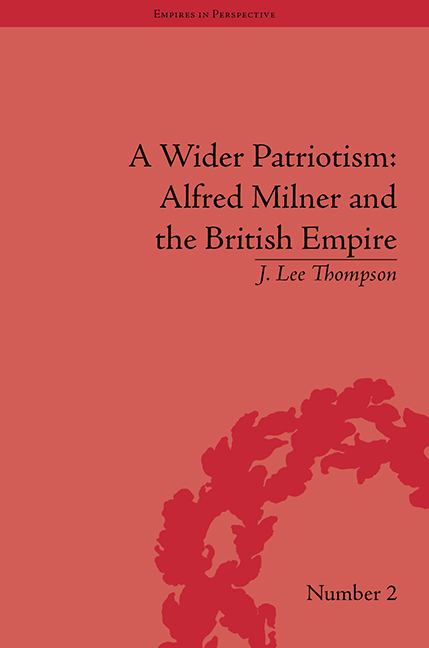Book contents
- Frontmatter
- CONTENTS
- Preface
- Acknowledgments
- Part I A Question about Which I Have Never Been Able to See the Other Side
- Part II Civilian Soldier of the Empire: South Africa
- Part III Constructive Imperialism
- Part IV Imperialism on the Anvil
- 11 The Empire at War
- 12 Imperial War Cabinet
- 13 An Imperial Peace
- 14 Egypt Again: The Milner Mission and After
- 15 Conclusion: A Wider Patriotism
- Notes
- Works Cited
- Index
13 - An Imperial Peace
from Part IV - Imperialism on the Anvil
- Frontmatter
- CONTENTS
- Preface
- Acknowledgments
- Part I A Question about Which I Have Never Been Able to See the Other Side
- Part II Civilian Soldier of the Empire: South Africa
- Part III Constructive Imperialism
- Part IV Imperialism on the Anvil
- 11 The Empire at War
- 12 Imperial War Cabinet
- 13 An Imperial Peace
- 14 Egypt Again: The Milner Mission and After
- 15 Conclusion: A Wider Patriotism
- Notes
- Works Cited
- Index
Summary
On 27 December 1918 Milner attended a London reception for President Wilson, who broke with US tradition and came to Europe to represent his country at the Peace Conference scheduled to open in Paris the next month. The event went off very well despite the fact that while preparing to depart for Europe Wilson had described Milner as ‘a Prussian’, Lloyd George as a ‘man without principles’, Clemenceau of France as ‘an old man, too old to comprehend new ideas’, and Premier Orlando of Italy as a ‘damned reactionary’. The President's ‘No Annexations’ slogan was also in direct conflict with the desires of all the British Empire delegation save Canada. Lionized by the public wherever he travelled, Wilson would have less success with the leaders with whom he had to negotiate, particularly Clemenceau and Lloyd George, who took full advantage of the President's paramount desire – to create a League of Nations, which at Wilson's insistence would become the first subject on the Conference agenda and integral to the German treaty.
Before making peace, however, there was political business to attend to at home as the Prime Minister reshuffled his Cabinet after his victory in the December ‘Coupon’ Election. Milner told Amery that he had been offered the Colonial Office and that ‘they were making a great fuss about inducing him to stay in the Government’. The kind or shape of the proposed arrangement remained ‘entirely vague’, though Milner believed they were coming nearer to the idea, for home affairs, of a smaller inner reconstruction cabinet, along lines recommended by Amery and Hankey. Amery hoped this would be paired with a separate panel, dominated by Milner, for the Imperial sphere. The whole future of imperial development, he told Milner, would depend on the next two or three years and there was no one else who could be trusted ‘not to handle the thing wrongly’. There was the projected Conference to discuss the future constitution of the Empire, as well as an immense lot of work to do in the development of the Crown Colonies.
- Type
- Chapter
- Information
- A Wider PatriotismAlfred Milner and the British Empire, pp. 170 - 183Publisher: Pickering & ChattoFirst published in: 2014



